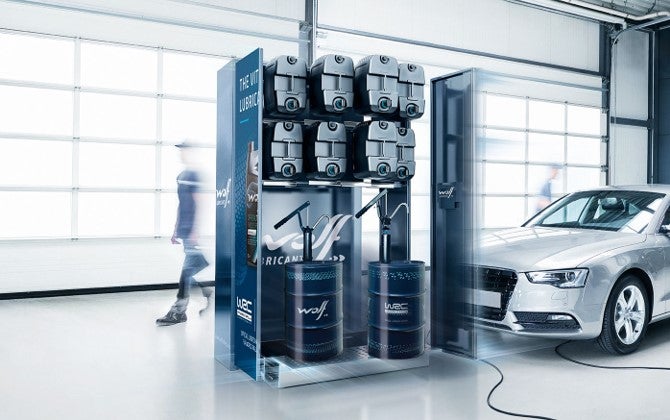
Everything you need to know about hybrid vehicle fluids

The automotive landscape is shifting and hybrid vehicles are becoming increasingly popular among drivers and automotive manufacturers alike. Why? Because they are helping manufacturers to meet emissions standards and offer an excellent option for drivers wanting a higher efficiency and lower emission vehicle without relying solely on battery range and recharging.
Reports indicate that between 2022 and 2030, the hybrid vehicle market is set to grow at a compound annual rate of 30%, reaching more than 1.6 trillion USD. This means it is vital for garages and workshops to understand the unique requirements of hybrids and how their systems differ from conventional petrol, diesel, and electric vehicles.
How do they work?
The hybrid vehicles commonly available today use a combination of an internal combustion engine, a battery, and an electric motor. There are three main types of hybridisation: mild hybrid, full hybrid, and plug-in hybrid. While the overall idea is similar, there can be significant differences between the technologies that are important for technicians to understand. Fundamentally, the car is powered by the combustion engine and the electric motor, with the battery being recharged by the motor as well as other energy recovery systems.
- Mild hybrid electric vehicles (MHEVs) rely primarily on their combustion engine but have a secondary electric system to help make them more efficient. They operate simultaneously and the car cannot run only on electric power.
- Full hybrid electric vehicles (FHEVs) are the vehicles you think of when you hear “hybrid vehicle”. They have a combustion engine, a large capacity battery and motors than can handle more of the load. Often, they will have regenerative braking, which converts the car’s kinetic energy into electricity to recharge the battery – just like in Formula 1! They may be able to run in “electric only” mode, depending on the model.
- Plug-in hybrid electric vehicles (PHEVs) are exactly what you think! They are hybrid vehicles that can be plugged into an external power source to charge the battery. They can operate solely using the electric powertrain for short journeys, making them a great option for drivers living or working near cities with restricted emissions zones.
Do hybrid vehicles need engine oil?
The short answer is yes, absolutely. Just like petrol and diesel vehicles, all hybrids use an internal combustion engine that requires permanent lubrication. When considering the fluid and servicing requirements of a hybrid vehicle, think of it as a conventional car plus an electric propulsion system – there is actually more to service and maintain! It means that hybrid vehicles need the same fluids as a combustion car, including transmission oil for smooth shifting and engine coolant to avoid overheating.
Lubrication challenges of hybrid vehicles
With two propulsion systems, things can get a little complicated. That is why hybrid vehicles have some unique lubricant challenges that need to be understood. First of all, many hybrid vehicles start out in electric-only mode, switching to the combustion engine when the load becomes too high, like when joining the highway. It means that the engine is experiencing a cold start under demanding conditions, which requires an engine oil with exactly the right properties to ensure function and protection.
Another complication of hybrid vehicles is if the combustion engine is rarely used or if it is only engaged for very short periods. This can lead to a range of serious issues, including water formation, acid formation, and fretting wear. As load is shared with the electric powertrain, combustion engines in hybrids are usually cooler too, further complicating lubrication requirements. Hybrid engine oils must be robust enough to handle inconsistent or occasional use as well as perform adequately at lower average engine temperatures.
Why do hybrid cars need a specific engine oil?
To overcome the challenges we have just discussed, hybrid engine oils have been optimised for these tough conditions. They are better suited to lower running temperatures, have lower viscosity to ensure internal coverage, and resist degradation over time – even with many cold starts or no starts at all.
Another important consideration is fuel efficiency and emissions. To achieve maximum efficiency and minimise emissions, hybrid vehicles require an engine oil that will provide sufficient lubrication and protection while also having a low enough viscosity to enable highly-efficient operation. Without the right engine oil, the fuel and emissions savings offered by the hybrid system may be significantly reduced.
As you can see, hybrids have some unique requirements. As such, it is important to always follow manufacturer specifications when selecting the right lubricant and to understand why hybrids require different engine oil to conventional vehicles.
Wolf’s solutions for hybrid vehicles
Here at Wolf, we are always finding new solutions to market challenges. As hybrids have become more popular and aged, they have moved into the aftermarket. Foreseeing this transition, our engineers have been formulating high-quality lubricant and fluid solutions for maximum protection and efficiency. In fact, we were one of the first companies to launch a Hybrid Range, back in 2019. Since then, our Hybrid Range has expanded to include transmission oils, coolant fluids, and more.
Currently, Wolf’s Hybrid Range contains 45 products for hybrid vehicles including 8 different specialty engine oils that offer an impressive 100% coverage of the hybrid car parc. You can learn more about our Hybrid Range here.



